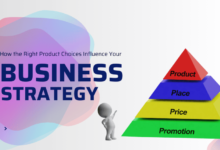Like auto insurance, small business insurance is something you hope never to use. However, things may go wrong, and you may need coverage. Business insurance will protect your company by ensuring business continuity.
Unfortunately, many small businesses don’t have insurance. According to research, over 44% of small businesses don’t have insurance. The study also shows that most of these companies have been in business for at least one year.
There are many types of insurance for small businesses. Purchasing the right one for your company will protect your assets from legal claims and damages.
Most business owners avoid buying insurance due to the complexity of the process. Every company needs a different type of coverage. The coverage will depend on its size, industry, and location. Unfortunately, the choices are overwhelming, especially if you’re new to entrepreneurship.
Below are five different types of insurance for small businesses:
Worker’s Compensation
If you run a business, worker’s compensation insurance is a must-have. The insurance helps pay for employee’s medical expenses. It also offers them an alternative income if they were injured in an accident at work.
However, employees only get these benefits if they give up the power to sue their employer. This is true regardless of who caused the accident.
Businesses must have worker’s compensation in all states across the U.S. except Texas. However, some companies often operate without worker’s comp insurance coverage. This may lead to a significant penalty depending on your state’s regulations.
But how can worker’s compensation Insurance help you? Worker’s compensation insurance compensates your employees for any work-related injuries.
This protects them by ensuring they get the medical care they need. It also provides legal and financial protection for your company. That’s because you will avoid employee injury lawsuits that could bankrupt your business.
Professional Liability Insurance
Professional liability insurance is also known as Errors and Omission Insurance (E&O). If your business works directly with clients, you should have professional liability insurance. Working with clients means providing services such as healthcare and home repairs.
The policy protects you from customer’s claims of providing services improperly. It also shields you from claims of negligence and failure to perform.
For instance, web developers may write code that can’t withstand heavy internet traffic. This often leads to a loss of sales. Or a financial planner accused of offering the wrong advice to clients, leading to loss of money.
But with professional liability insurance, you can cover the cost of damages related to these allegations. You can also pay for the lawsuits related to your professional errors or negligence.
Property Insurance
Property insurance is one of the many insurance options for companies today. Property insurance protects a company from incurring financial losses due to damaged structures.
The policy covers the cost to rebuild or repair your business’s physical structure. Most buildings incur damage due to:
- fire
- theft
- hailstorm
- smoke
- vandalism
- wind
Property insurance policies only cover a company’s physical building. On the other hand, commercial vehicle policy covers other properties and assets. These assets include trucks and cars in a commercial fleet. Some insurance providers also offer businesses add-ons such as business interruption coverage.
This means that the policy will compensate you for lost income as a result of the property damage. For example, suppose your manufacturing factory is damaged in a hailstorm, and half of your machines aren’t working.
In that case, your property insurance coverage with a business interruption add-on will pay for the repair you need. It will also reimburse your company for the loss of income while you were operating at half-capacity.
After your building is damaged, the cost to repair or rebuild it can be overwhelmingly high for your business. Therefore, business property coverage will shield you from these financial consequences. It will also protect your business from failure due to unexpected events.
Property insurance also helps your business by compensating for lost income when operating at half capacity. This helps you avoid business closure.
General Liability Insurance
General liability is another type of small business insurance. It protects your company from lawsuits and paying compensation. The policy covers property damage and bodily injury incurred due to your business operations.
For example, if your employees damage a client’s property when working at their home or business premises, the policy will pay for the damage. It will also pay for compensation if a customer slips and falls while shopping at your store. In both these cases, medical expenses and repair costs can be quite costly.
General liability coverage pays for settlements and legal costs of the injured individual. However, what is included in the general liability coverage varies from one state to another. The amount your business pays will depend on the extent of the coverage and the maximum amount stated by the insurance company.
Lawsuits and compensations are often more expensive than insurance premiums. Hence, small business owners also prefer adding extra umbrella policies for maximum protection.
Business’s Owner’s Coverage
A business owner’s policy (BOP) is a combination of liability and property insurance. BOP offers business owners the coverage they need in one convenient and comprehensive package at a highly competitive price. Business owner’s coverage is mostly designed for small businesses and start-ups.
Mid-sized businesses and larger corporations often have more complex insurance needs. Therefore, they should purchase the two policies separately. So how can BOP help your business?
Business owner’s insurance protects your business from lawsuits resulting from property damage. It also shields your company against customer slip and fall accidents. Thanks to this bundled-up policy, it’s less expensive than purchasing property and liability insurance separately.
Insuring a business can be overwhelming, especially if you don’t know the right policies to buy. However, with the help of a reputable insurance adviser, the process will be easier and more seamless. Hence, it’s advisable to find the best insurance adviser to help you with the process.
Now You Know the Different Types of Insurance for Small Businesses
There are many types of insurance for small businesses. And knowing the right insurance coverage for your company will be instrumental in protecting your business. Thankfully, the above guide will help understand the different kinds of insurance and what they cover.
Did you enjoy this article? Check out other posts on our site for more informative tips.






